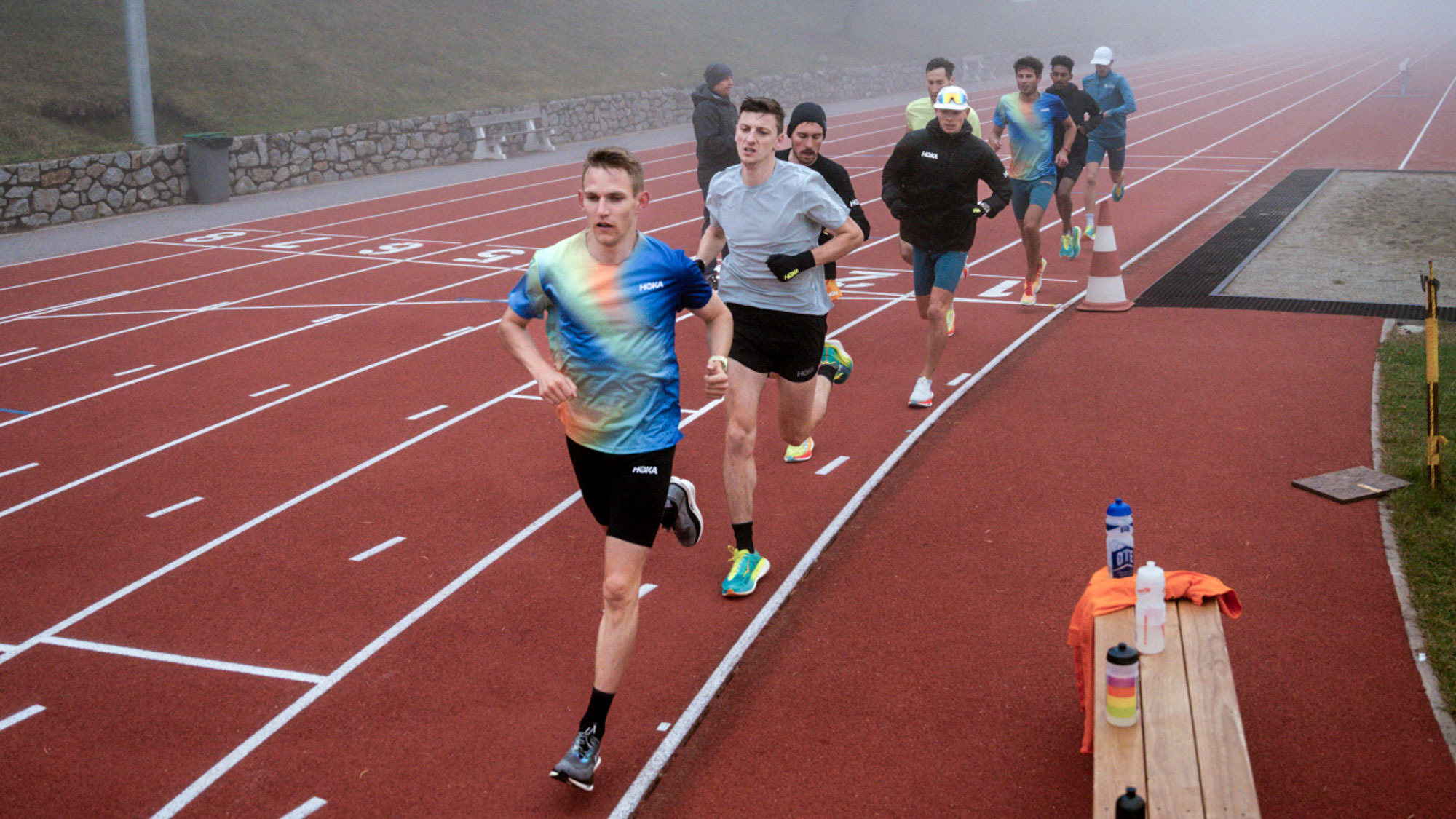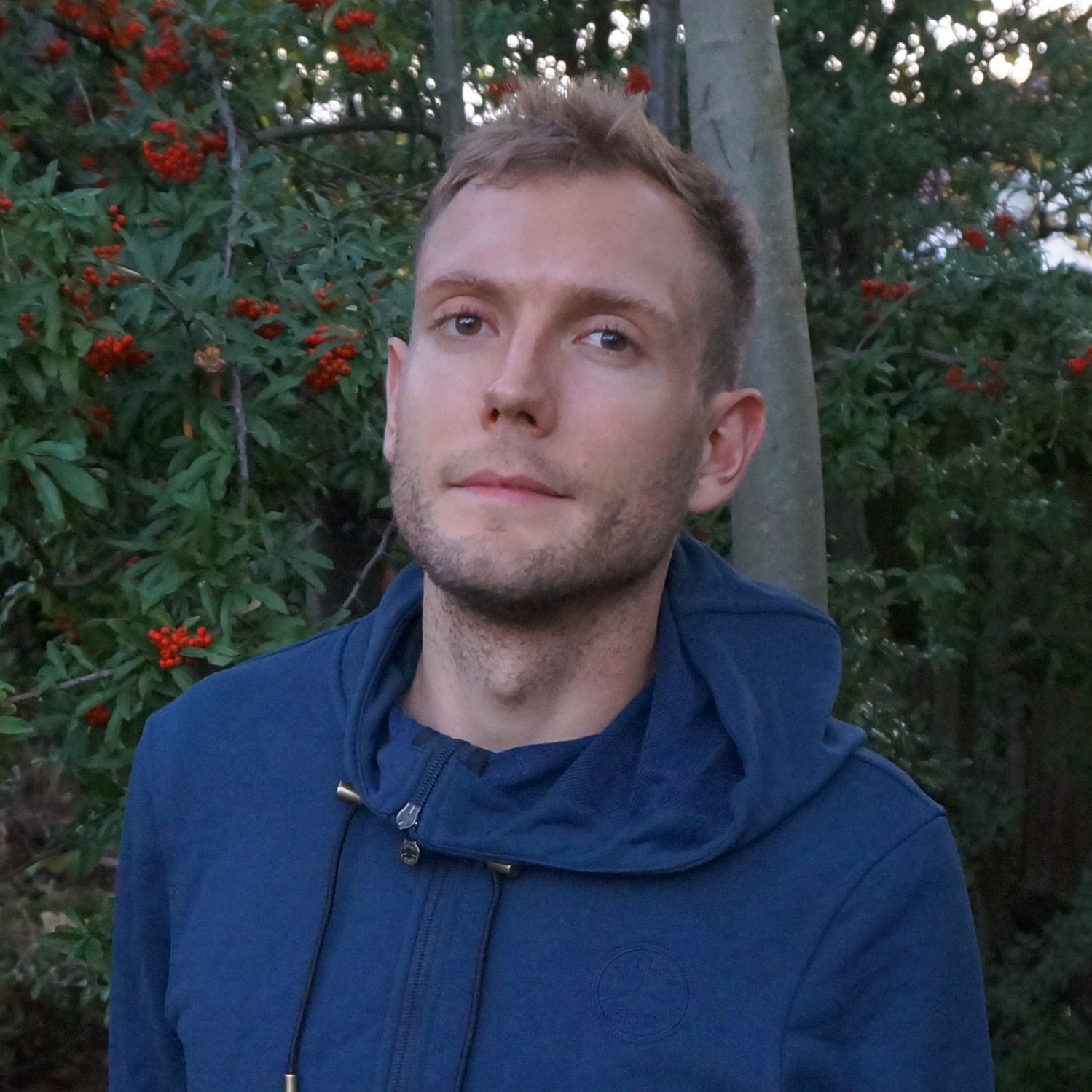Elite Hoka runner shares one tip that will help you smash your next race
This motivational tip can help you set a PR

No one is immune to race day nerves. Whether you’re a new runner tackling your very first event, or a pro lining up to try and win a medal at a major championship, everyone gets butterflies.
Worse than that are the doubts that can creep in just before a race, where you start to question whether you can actually complete the distance, run a PR, or claim a race win. As a keen runner in the past I’ve loaded up my Strava when these doubts emerge, just to prove to myself that I’ve actually done some training before race day.
However, I have a new approach to conquer these doubts that I’m going to use for my next race, which I’ve learned from Hoka pro runner Callum Elson. I recently spent a few days training with Elson and other Hoka elite runners at high altitude, during which time the British middle distance runner shared a great tip for dealing with race day nerves.
“One thing I think is massively important is the visualization aspect of racing,” says Elson. “Often when we're motivated, positive and training well, you think you can beat a lot of people or run a PB and you imagine yourself doing it.
“But the closer a race gets, especially if it's a big target race, there's a level of anxiety that comes with it. A pressure where you start to doubt yourself, or doubt your training. One thing that I found really useful is when I'm in a logical state of mind — maybe three or four days before the race — when I'm thinking clearly and I'm happy and confident, I'll just jot down some things on the notes app on my phone.
“This is what the plan is, this is how you feel, this is the training you've done and this is why you can do well. Positive, good things. And then if I do have a moment where I've just finished my warm-up and I'm a bit nervous or tense, I’ll read what I've written to myself to reaffirm those things. I don't do it for every race, but I definitely do it as a coping mechanism so it's there if I need it.”
A post shared by Callum Elson (@the.distanceproject)
A photo posted by on
If you have a coach or know a lot of runners, you’ll be getting plenty of encouragement in the build-up to a race that can help with motivation as well, but Elson believes it’s self-belief that can really make a difference.
Sign up to get the BEST of Tom's Guide direct to your inbox.
Get instant access to breaking news, the hottest reviews, great deals and helpful tips.
“There's definitely a link between believing you can do something, saying you can do it, writing it down and it being actually what you think. It’s not lying to yourself — fake confidence gets you nowhere – but having it physically there to recall on paper form, I personally think is way better than having a coach or friend say ‘you can do this, you're really good.’
"That’s really nice and they're trying their best, but nothing beats you being like ‘four days ago, you thought you could do it. So why do you not think it now?’”
To prove how well this advice can work, note that Elson used this approach for one of the biggest races of his career to date, when he won a silver medal in the mile at the World Road Running Championships in Riga last year
“The night before in the hotel, the start list came out and I was like ‘wow, amazing name, amazing name, amazing name.’ All these great people that are on paper are faster than me, looking at the rankings, out of 30 people I'm 26th or 27th.
“There was a little hotel notepad and pen. I remember just writing down a few positive things. ‘Run with personality, remember the training you've done, and if you're there with 50m to go, you might win the thing.’
“Then that's exactly how I ran. I checked it before the race, whatever I'd written to myself. When you watch the race back, I did exactly what I said. I ran with personality, pushed people out the way that I had no right to push out of the way, got to the front, and then with 50m to go, I gave myself a chance to win it and got second."
There are many things you can write to yourself to read just before your race, but for me as a runner often chasing PRs it’s all about reminding myself that I can run the pace I’m aiming for, that I’ve done the training for it, so I’ll note down some key sessions and past results to prove that to myself.
While Elson is a runner there's no reason this advice won't work well for other sports, or even stressful life situations like interviews. No-one is better placed to tell you that you can do something than yourself, so get that notepad out.
More from Tom's Guide

Nick Harris-Fry is an experienced health and fitness journalist, writing professionally since 2012. He spent nine years working on the Coach magazine and website before moving to the fitness team at Tom’s Guide in 2024. Nick is a keen runner and also the founder of YouTube channel The Run Testers, which specialises in reviewing running shoes, watches, headphones and other gear.
Nick ran his first marathon in 2016 after six weeks of training for a magazine feature and subsequently became obsessed with the sport. He now has PBs of 2hr 27min for the marathon and 15min 30sec for 5K, and has run 13 marathons in total, as well as a 50-mile ultramarathon. Nick is also a qualified Run Leader in the UK.
Nick is an established expert in the health and fitness area and along with writing for many publications, including Live Science, Expert Reviews, Wareable, Coach and Get Sweat Go, he has been quoted on The Guardian and The Independent.
